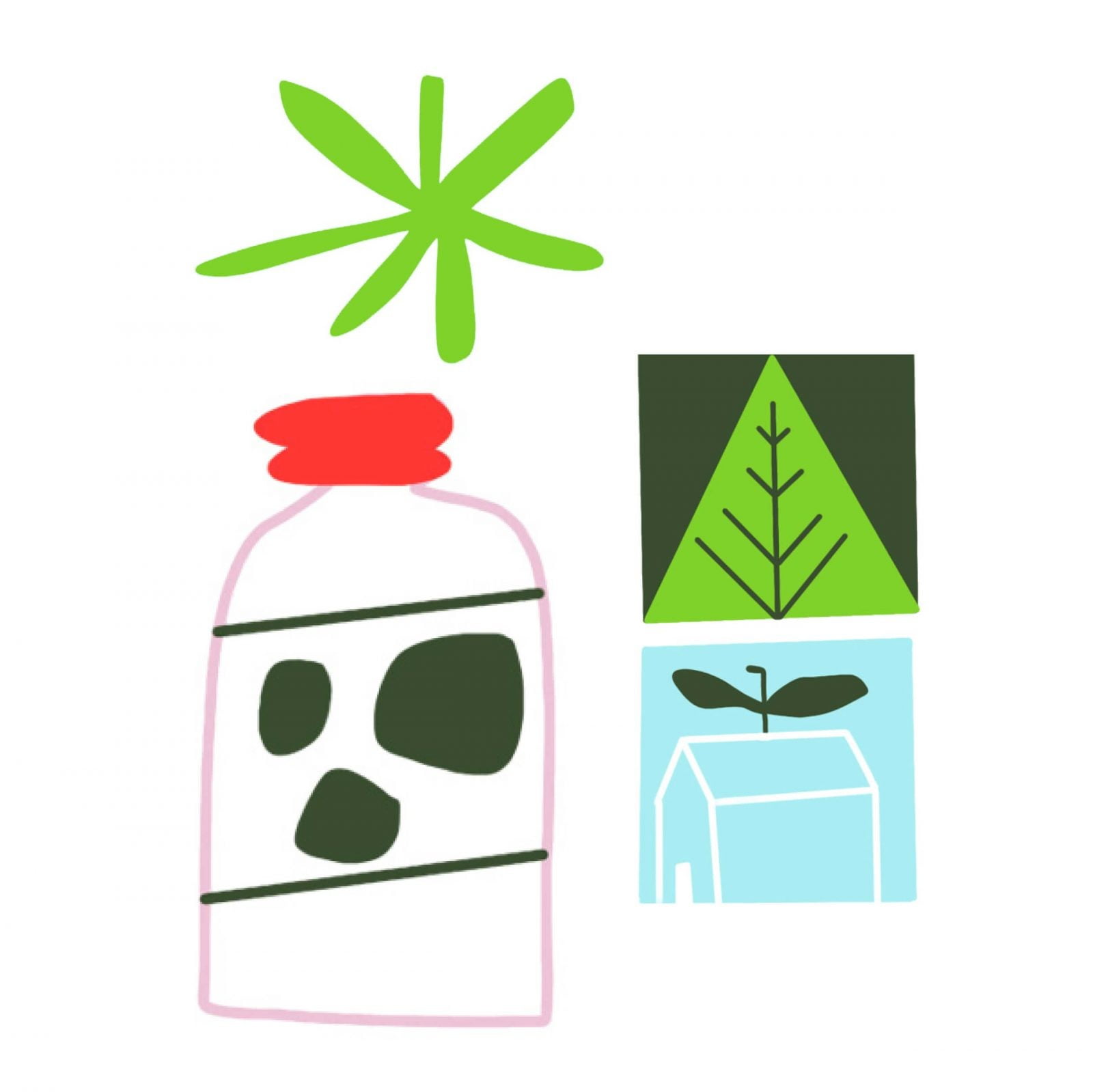2.
Minimise packaging

How it helps you
Think about packaging in four categories – don’t use it in the first place; make it recyclable (glass, cardboard, paper, wood); make it compostable; the rest. By reducing packaging and ensuring that it is made of recyclable materials you can avoid extra costs from up and coming taxations (for you and your customers) – e.g. the UK’s Plastic Packaging Tax will launch in April 2022, charging businesses of all sizes for packaging that doesn’t use at least 30% recycled plastic.
ACTION: Remove non-essential packaging
Do an audit of all packaging in your operation (shop, postal and delivery service if you sell online) and determine what is really needed. If it doesn’t protect the product or communicate key essential information to customers, can you remove it? If so, this will help you reduce your packaging costs. If you think any of your suppliers’ packaging is unnecessary, encourage them to remove it.
What others are doing
ASDA has eliminated plastic greeting card packaging from 92% of greeting cards. Envelopes are also distributed separately. This saves 50 million cellophane bags each year and there has been no rise in damage rates from eliminating the packaging.
In 2018, ASOS set themselves a target to eliminate at least 50% of problematic and unnecessary packaging lines by 2025. By 2020, they had removed over 40% by auditing all products and removing unnecessary packaging, including swing tags, plastic tags and shoe boxes.
ACTION: Eliminate single-use packaging, especially plastic
As well as removing non-essential packaging, ensure the packaging you still use does not contain single-use plastic and is recycled and recyclable. Refer to your local council website to understand what is accepted in your area to help you choose. Two examples:
If you sell hot drinks that are often bought on-the-go, choose widely recyclable coffee cups instead of biodegradable ones (or single-use plastic ones). The UK doesn’t have compost bins in public places and since your customers’ coffee cups are likely to be thrown away while they’re on the move, widely recyclable ones stand a far better chance of actually being recycled rather than ending up In landfill.
Instead of selling bottled water, sell reusable water bottles, provide free water refills for your customers and don’t forget to join Refill, which advertises where customers can get free water to promote what you are doing https://www.refill.org.uk.
What others are doing
Waitrose has been trialling ways of offering customers the chance to buy products completely free of packaging by implementing 160 types of loose fruit and veg, a dedicated refill station including wine & beer, rice and cleaning materials which are typically 15% cheaper than the packaged alternatives. The top 10 supermarkets produce 810,000 tonnes of throw away packaging each year so action is needed.
Where to go to find out more
Wrap has identified 8 key plastics to eliminate. Watch the video which only takes a couple of minutes to learn more.
https://wrap.org.uk/taking-action/plastic-packaging
ACTION: Encourage your customers to reuse packaging and bring in their own
Sell reusable packaging in your shop and share clear and helpful information so your customers know their options. Offer a stamp card to customers who use your reusable packaging to encourage them to bring back their packaging time and time again.
If possible, set up a plastic-free refill area in your shop, allowing customers to get product refills with existing packaging. If selling food or perishables, think carefully about the quantities you might need as you don’t want to inadvertently waste what you can’t sell.
If you offer home delivery, explore packaging-free options, or offer to take back packaging from previous deliveries when new orders are delivered.
Offer deposit return schemes or discounts to customers who bring back certain packaging to your shop to encourage repeat custom. The Government is going to introduce a compulsory deposit return scheme for plastic bottles which will launch in 2022 in Scotland, elsewhere in 2024, and will reward customers for returning and recycling their bottles as they will be charged a deposit when they buy them.
What others are doing
In a 2019 pilot, users of the Refill app in Oxford and Bristol could find out where to fill up their coffee cups, lunchboxes, groceries, cleaning products and toiletries. Waitrose, Morrisons and Asda participated, alongside other retailers.
Splosh delivers cleaning products as concentrates, direct to your door. All subsequent deliveries are done in refill pouches (which can be returned for reuse or recycling). To date, Splosh has saved over 1.25 million bottles from the bin.
Mindful Chef, the meal delivery service, provides shipping labels for customers to post back the insulation that is sent with their deliveries to keep their food fresh.
ACTION: Reuse packaging in your own business operations
Ask your suppliers how non-essential packaging can be reduced when they ship your products. For any packaging that is essential, work with them to understand what can be reused and collected in their next delivery. Speak to them about swapping materials which they use to deliver your products in e.g. using reusable strong plastic crates, made from recycled plastic which can be reused indefinitely, is better and cheaper than using cardboard boxes.
Rather than discarding the packaging that you receive, find ways to reuse it yourself (e.g. reuse plastic hangers season on season rather than give them to customers), or with other local businesses. Consider joining a group like https://www.freecycle.org or post on your local community group pages.
ACTION: Share reusable packaging with other businesses
Save money on your own packaging needs by clubbing together with fellow retailers to buy the often more expensive reusable packaging (e.g. shared reusable coffee cups, lunch boxes or locally-branded carrier bags that will be widely accepted at local retailers).

